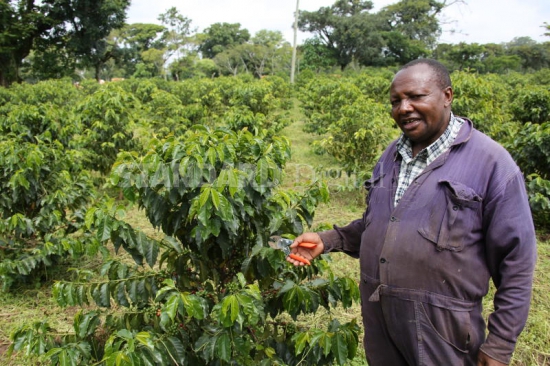×
The Standard e-Paper
Join Thousands Daily

KAKAMEGA, KENYA: In the deep of Kakamega County in Mukumu, there is a man of God who has decided to take a risk and go against the grain.
Father Felix Lekule of Shibuye Catholic Parish in Kakamega and chaplain of St Elizabeth Mukumu Mission Hospital, has ventured into coffee farming despite the fact that fellow farmers in the area are abandoning the crop for various reasons.